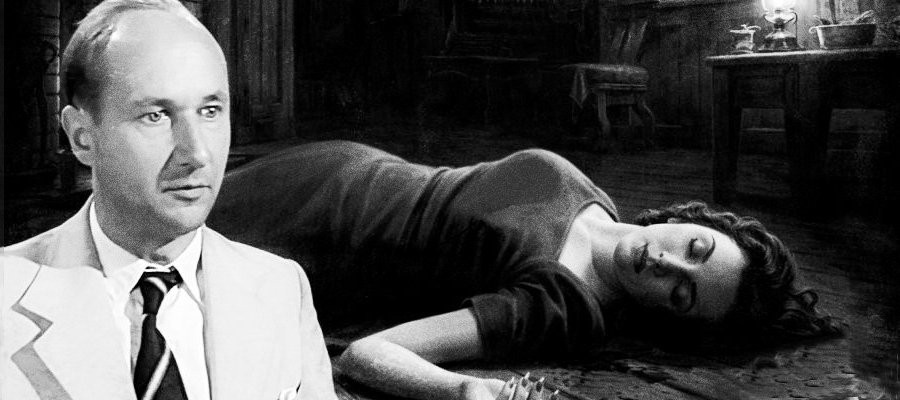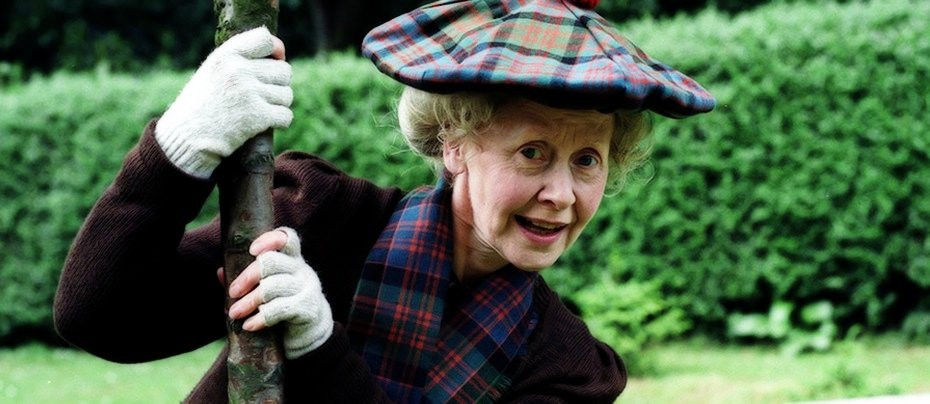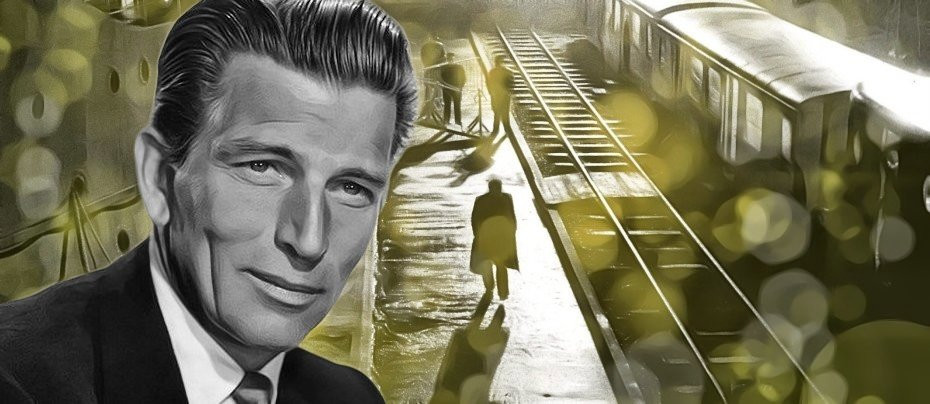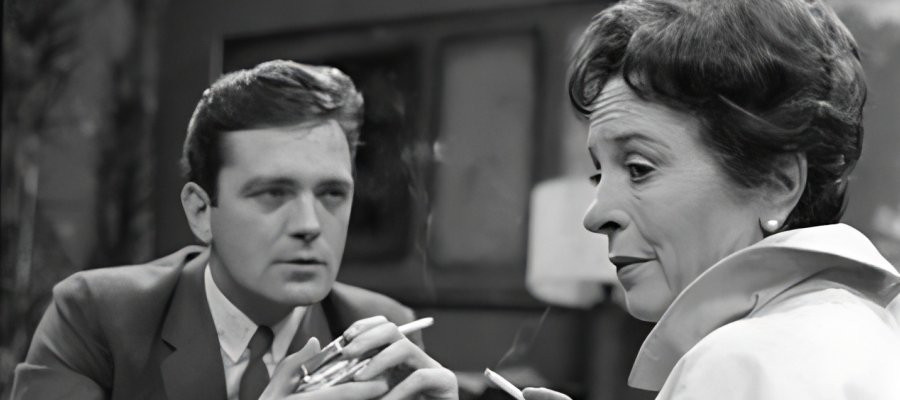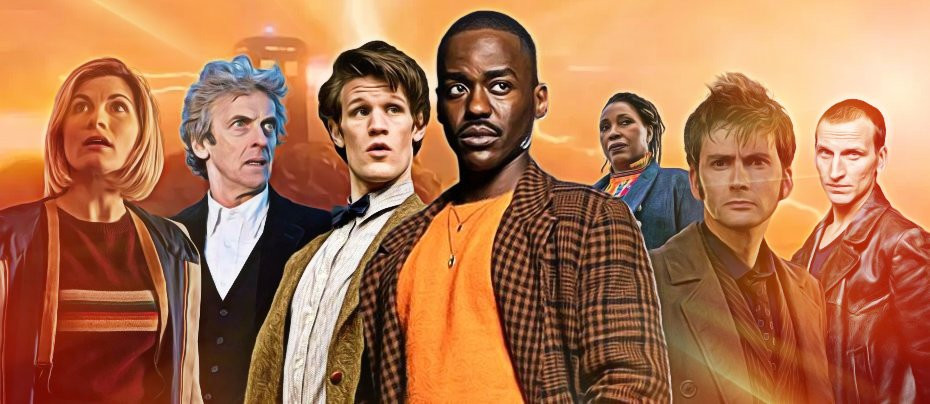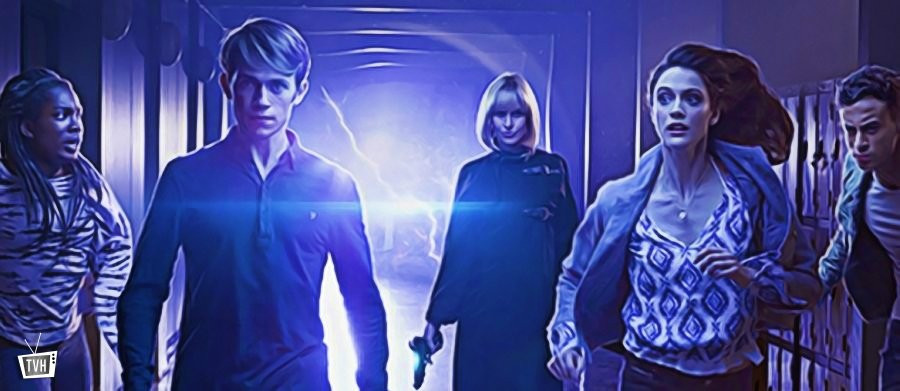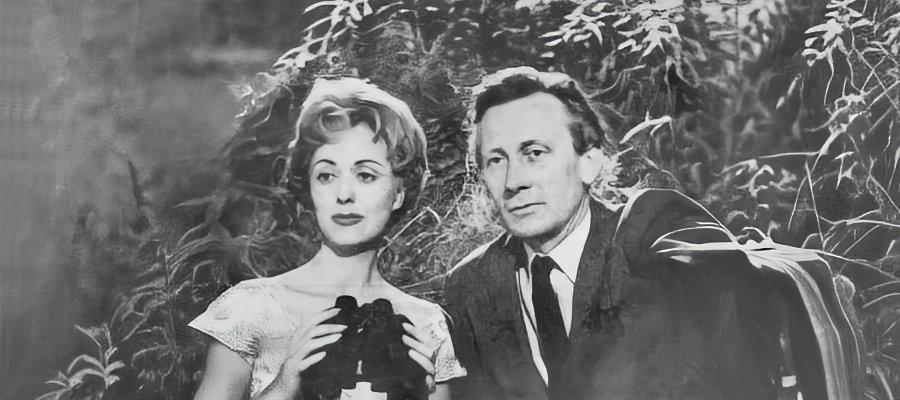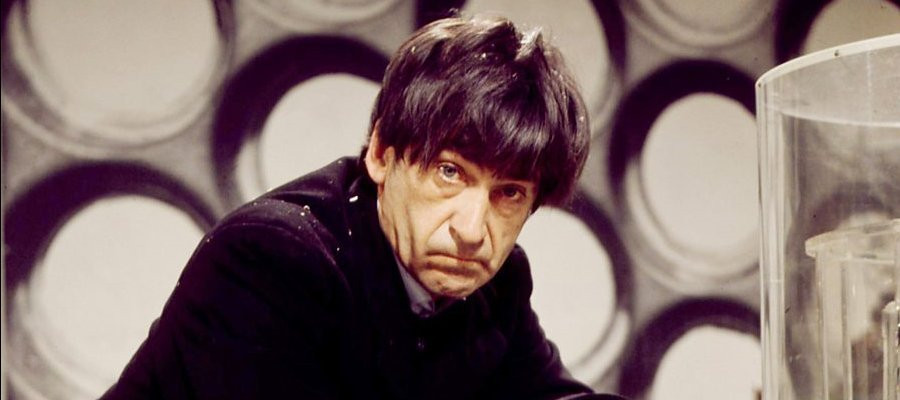
Patrick Troughton
"If I had not been an actor I would quite like to have been a teacher. Children keep one young."
The line between superb character actor and full-blown star is a subtle and difficult thing to define. Some, like the late, great Peter Cushing for example - or latterly Sir Ian McKellen, succeed in maintaining a seemingly effortless balance between the two, while others such as Sir Derek Jacobi, prefer to err on the side of character actor first - leading performer second. In the rarefied sphere of classic British television, no other actor more than any other personified that latter choice better than the late Patrick Troughton.
With intelligence, wit, skill and innate humility and humour, Troughton was arguably the ultimate chameleon, traversing a gamut of roles with a seemingly effortless skill that afforded him widespread acclaim and public affection without unduly compromising his private life. Notoriously shy about giving interviews, Troughton once said, "You see, I think acting is magic. If I tell you all about myself it will spoil it. It's like a conjuror showing you how he does his tricks. If you can see how it's being done it takes away all the magic. I don't want people to see me. I want them to see the person the writer's spent so much time creating brought to life."
Patrick Troughton was born on March 25, 1920 in Mill Hill, North West London, and grew up, he said, "a fairly average child." About the age of six he studied ballet dancing under Pearl Argyle, who had appeared in the film Things to Come. However, he soon gave up the idea of becoming a ballet dancer. Around that time he was sent to boarding school at Bexhill-by-the-Sea but eventually returned to London where he continued his education at Mill Hill School and got the acting bug around the age of sixteen. "I heard a radio programme about Fay Compton and was interested in what she had to say. The life she described appealed to me, and I felt that I'd like that kind of life for myself." Having passed his A Levels at school he enrolled at the Embassy School of Acting in Swiss Cottage, which was then run by Eileen Thorndyke, sister of the actress Dame Sybil Thorndyke. He was there for a couple of years and won a scholarship to go to the prestigious Leighton Rollins Studios at the John Drew Memorial Theatre in East Hampton, on Long Island in America. "We did a lot of plays there, as well as a lot of hard work in our studies. I had a wonderful time."
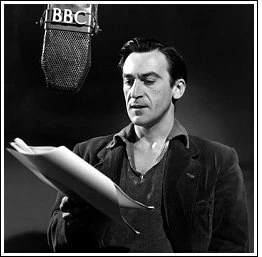
He finished his scholarship in 1939. "The day we broke up we listened to Neville Chamberlain announcing that we had declared war on Germany. My dad was a lawyer in a shipping firm and he arranged me a trip back on a Belgian ship." On the way back to England the ship hit a mine and the passengers and crew had to take to the lifeboats before being rescued by a Greek steamer. Safely back in England, Troughton, now 19, patiently awaited his call-up. As it turned out he had to wait until he was 21 before his country decided it needed him - so in the interim period he did rep at Tunbridge Wells with people like John Cullum and Googie Withers.
When the call-up came Troughton joined the Navy and was sent up to the Highlands at Loch Ewin where, along with four other commissioned candidates, he did three months sea-time before he could take his exams. "We actually did six months, in fact, on the east coast convoy, on destroyers, working between Rosside and Sheerness. Then I was posted back to Scotland to train on Coastal Forces." Working on small ships and torpedo boats his unit made daring night attacks on German convoys off the Dutch coast. Following that, Troughton was sent to Ramsgate to "bottle up the E-Boats off Ostend, to stop them coming out."
Troughton spent the rest of the war based in Great Yarmouth, defending the convoys off the east coast against German U-Boat and air attack. He was later promoted to captain his own craft. "I was given my own command and sent back to Great Yarmouth. I spent the rest of the war picking American's out of the drink! This was when they returned in their Fortresses and Liberators. That was more or less my war."
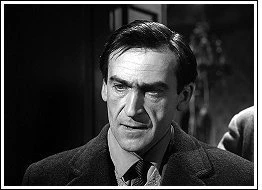
Troughton served until March 1945 after which he returned to rep in Amersham. Then he got an entire season at the Bristol Old Vic doing Shakespeare and other plays. He did two years at the Mercury Theatre Nottingham doing T. S. Eliot plays; Murder in the Cathedral and Family Reunion. After that, Troughton, now married, decided he didn't want to be away from home for long periods so he returned to London. In 1947 he landed his first television; Horatio in Hamlet. This appearance bought him to the attention of Laurence Olivier who was casting for his film version of Hamlet and Troughton was chosen to play the part of the Player King. "Later on, I was in Richard III, where I was Olivier's acting understudy. I was in an identical costume, identical make-up. I had to watch him rehearse a scene then do it for him - exactly as he had done. This was so that he could compose the picture, then he would do the scene."
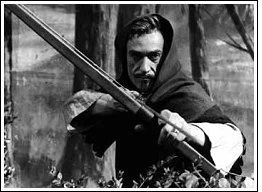
In 1953 Troughton landed the lead role on BBC television as one of the most romantic figures in British folklore: Robin Hood. Written by Max Kester and broadcast over six weeks in 30-minute episodes from 17th March 1953, Robin Hood was broadcast live using back projection for the scenes that were supposed to be taking place in Sherwood Forest. "The projectionists were from Pinewood Studios, because they had a machine, and we had to hire it from them," Troughton later recalled. "We came on for a scene and there was a noise behind us from the back projection and when we looked they had put the forest in sideways! We continued doing the scene and the trees disappeared. There was a white screen and then the trees appeared again the right way up! This was all being broadcast because it was live television and you couldn't stop." At that time the BBC was just beginning to experiment with a method whereby televised material could be preserved by filming it from a specially adapted monitor. As a result of this, in what is possibly the earliest example of these 'telerecording' experiments, an entire episode ('The Abbot of St Mary') exists in the BBC archives.
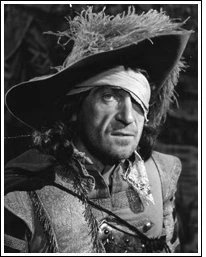
Troughton much preferred working on television to doing stage because he liked to work during the day and go home at night to his wife. He also stated that he much preferred the technique and intimacy of television and film. A veteran of over 150 filmed or live productions, Troughton was seldom off the screen throughout the rest of the 1950s appearing in The Scarlet Pimpernel and The Count of Mone Cristo (1956), Sword of Freedom (1957), Precious Bane (1958) and Dial 999 (1959). As the 1960s got underway his workload continued unabated, appearing in The Splendid Spur (1960), Danger Man and Sir Francis Drake (1961-62), The Old Curiosity Shop (1963), Smuggler's Bay (1964) and A Tale of Two Cities (1966).
In 1966, on location in Ireland, during the filming of The Viking Queen with Nicola Pagett, Troughton had a phone call from the BBC production office. They were looking for a replacement for William Hartnell who was the lead in the highly successful teatime science fiction series Doctor Who. Hartnell, who had endured a gruelling schedule on the show for three years was not in the best of health any more and was becoming increasingly difficult to work with. The series was so popular with the British public, and overseas sales bought in so much revenue for the BBC that they didn't want to end it. So, they took the decision to replace the lead. As Doctor Who was an alien and (up to that point) very little was known about his origins, it was decided that it would not be unreasonable for him to change his body when it became tired and worn out. He would rejuvenate. Troughton knew all about Doctor Who: "We watched Billy (Hartnell) as a family and saw every single story through his three years. I didn't know how long the BBC were really thinking of keeping it. So, to be honest, I was very reluctant at first. I didn't think it was a particularly good idea for the BBC to replace Billy. I thought it was pretty silly, really. The phone kept ringing and they were saying, "Come and play Doctor Who." And I said, "No, no, I don't want to play Doctor Who." And they kept phoning and I kept saying "It wouldn't last more than six months with me!" In the end, they kept pushing the money up so much that by the end of the week I said, "What am I doing? Of course I'll do the part! Yes!" Even if it only lasted six weeks it was worth doing."
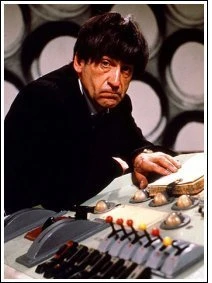
It was a huge gamble by the BBC to change the lead actor in a major, high profile series like Doctor Who. Not only did the actor change, but so did the whole character of The Doctor. Whereas William Hartnell had played the wandering time traveller as an irascible old Victorian gentleman, Troughton's version was more tempered but with an almost clownish mentality that belied a serious scientific interest, as if to announce his intentions from the start would put him at a disadvantage to his enemies. His appearance was a dishevelled version of Hartnell's, with ill-fitting clothes in a somewhat Chaplinesque style. It is no wonder Troughton initially had reservations on taking the part. However, the gamble paid off - and Doctor Who survived the cast change, largely thanks to Troughton's portrayal.
The impact and importance of Troughton's tenure as The Doctor in Doctor Who can be seen now as vital as was William Hartnell's original interpretation of the character. To take an established icon and change it so radically and have it universally accepted was not only testament to his acting ability but as much for his personality. He laid the foundation for every 'reincarnation' of the Doctor that followed and the series continues to thrive, some 50 years later, largely as a result of his impact.
In the end, Troughton did the series for three years. But that was as long as he wanted to do it. "I didn't want to get "typed" and had to get out while the going was good. You see, suppose it had gone on for ten years and then the BBC had dropped it. I would have been sunk, because after ten years you can't walk into another play. They'll all say, "Oh look, it's Doctor Who" straight away." He did, however, return over a period of years to play the Doctor in two specials and a one-off story.
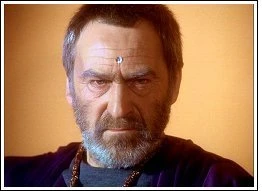
For many actors, the work that follows the leaving of such an iconic role as The Doctor runs the very real risk of being considered a career "Twilight". But for a performer of Troughton's talent the remaining years were as rich and rewarding for both actor and audience as the salad days of his tenure as the wandering Cosmic Hobo. When he left Doctor Who, in June 1969, Troughton quickly got back into the swing of being a jobbing character actor. In 1970 he made the Hammer horror film The Scars of Dracula and on television he appeared in the 1970 production of The Six Wives of Henry VIII (as the Duke of Norfolk). In 1971 he joined Coronation Street for a brief period and also starred in Granada's 1971 series A Family at War. Following Doctor Who's anniversary special (1973) he played major parts in Lady Randolph Churchill (1975) and The Feathered Serpent (1976). In 1983 there was another Doctor Who anniversary special followed by the first ever BBC organised Doctor Who convention, held at Longleat House in Wiltshire. (There had been other BBC events organised previously such as the Dalek show at Olympia in the 1960s and a Doctor Who exhibition as part of the BBC Special Effects Exhibition at the Science Museum in the 1970s - but this is generally recognised as the first fully dedicated convention). The BBC seriously underestimated the public demand for the Longleat event which was held over the Easter weekend. Fans flocked to it in their thousands! Having always avoided press interviews or events of this nature Troughton was, for once, persuaded to attend. It changed his outlook on his own rules of privacy.
In the USA, where Doctor Who was only seen on Public Service Broadcasting channels, the series began to accumulate a large and loyal following. Troughton soon became a regular guest at US conventions, favouring them over British ones only because he didn't want to become too associated with the series again in the UK. However, he did do one more Doctor Who in 1985 alongside Colin Baker who was by then playing the role. That year he made one appearance at a British organised convention in Brighton. He continued to take on numerous roles including The Box of Delights, Swallows and Amazons and Long Term Memory, all for the BBC, and The Two of Us, Yesterday's Dream and Knights of God for ITV.
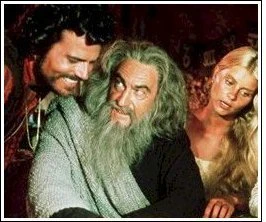
Troughton had suffered two major heart attacks in 1978 and 1984 which prevented him from working for several months. Following each of these attacks, his doctor's warnings were ignored as he committed himself to a heavy TV and film schedule. In 1987 he went to the USA for a Doctor Who convention in Georgia, USA. Before leaving the UK his doctor had warned him not to exert himself too much. On the morning of 28 March he had just ordered breakfast to his room when he suffered a fatal heart attack. The actor Anthony Ainley, who was at the convention with him and had dined with him the night before remembered, "We had two days to go at the convention. People were visibly moved and some were weeping. It was a big shock."
Even without the legacy of Doctor Who, Patrick Troughton would be rightfully remembered with fondness as one of the leading televisual exponents of his art during those halcyon formative years of the medium. But thanks to The Doctor - and the sheer talent of the man who personified him during his second incarnation, Patrick Troughton carved himself an enduring place in the hearts and minds of viewers that ensures his rightful place amongst the ranks of the television greats.
Published on February 20th, 2019. Written by Laurence Marcus & SRH (2010). Fantasy Empire interview 1986. Whovian Times interview 1984. Doctor Who magazine interview 1983. An Adventure in Space and Time 1987. Doctor Who A Celebration by Peter Haining for Television Heaven.


